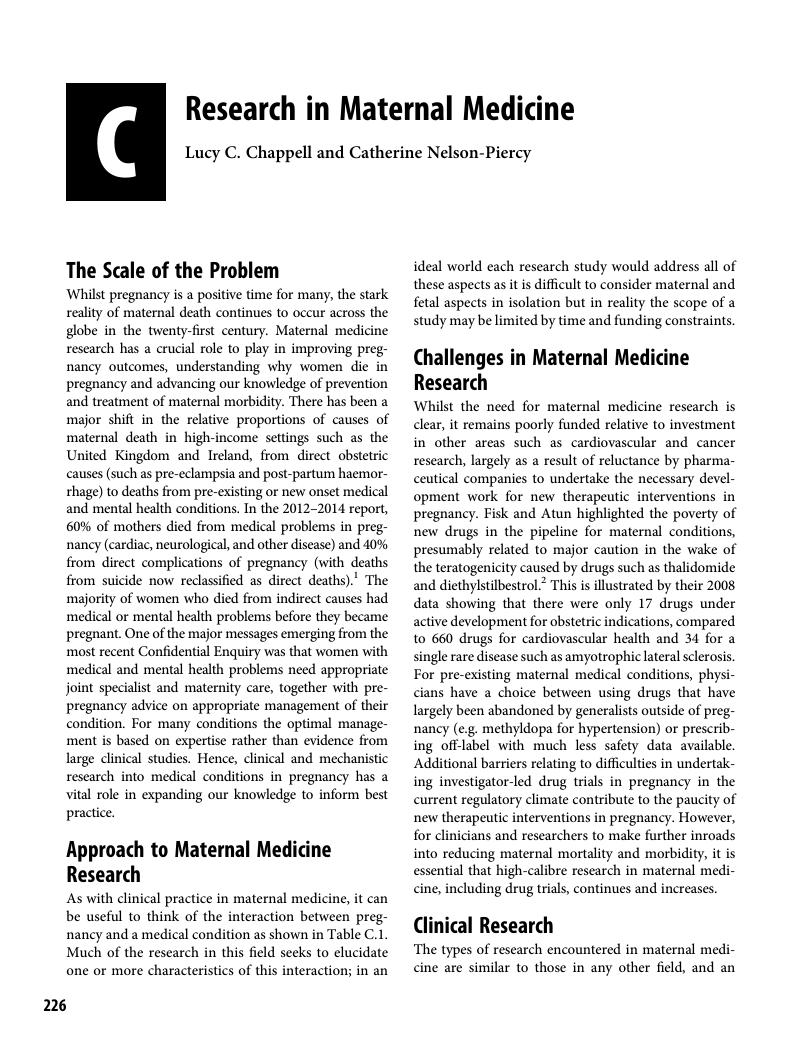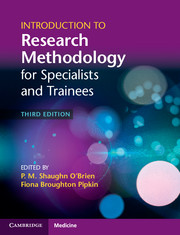Book contents
- Introduction to Research Methodology for Specialists and Trainees
- Introduction to Research Methodology for Specialists and Trainees
- Copyright page
- Contents
- Contributors
- Preface
- Chapter 1 Research During Specialist Medical Training
- Chapter 2 Time Management When Planning and Conducting Medical Research
- Chapter 3 Computer Skills Required for Medical Research
- Chapter 4 Computer Skills Required for Medical Research: Social Media
- Chapter 5 Finding and Using Information in Your Research
- Chapter 6 Critical Appraisal of the Medical Literature
- Chapter 7 Evidence-based Medicine and Translating Research into Practice
- Chapter 8 Clinical Audit for Quality Improvement
- Chapter 9 A Journey of Exploration
- Chapter 10 Randomised Clinical Trials
- Chapter 11 Animal Research and Alternatives
- Chapter 12 Genetic and Epigenetic Research
- Chapter 13 ‘Omic’ Research
- Chapter 14 Data Management in Medical Research
- Chapter 15 Statistics in Medical Research
- Chapter 16 Epidemiological Research
- Chapter 17 Informing Patients, Consent, Governance and Good Clinical Practice
- Chapter 18 Patient Involvement in Medical Research
- Chapter 19 Research in the National Health Service
- Chapter 20 Supervising Medical Research and Being Supervised
- Chapter 21 Funding Medical Research
- Chapter 22 The Purpose and Practice of Medical Research Meetings
- Chapter 23 How to Present a Medical Research Paper
- Chapter 24 How to Write a Medical Research Paper and Get It Accepted for Publication
- Chapter 25 How to Write a Medical Thesis
- Obstetrics and Gynaecology Supplement
- B Research in Fetal Medicine
- C Research in Maternal Medicine
- D Research in Benign Gynaecology
- E Research in Gynaecological Oncology
- Index
- References
C - Research in Maternal Medicine
Published online by Cambridge University Press: 04 August 2017
- Introduction to Research Methodology for Specialists and Trainees
- Introduction to Research Methodology for Specialists and Trainees
- Copyright page
- Contents
- Contributors
- Preface
- Chapter 1 Research During Specialist Medical Training
- Chapter 2 Time Management When Planning and Conducting Medical Research
- Chapter 3 Computer Skills Required for Medical Research
- Chapter 4 Computer Skills Required for Medical Research: Social Media
- Chapter 5 Finding and Using Information in Your Research
- Chapter 6 Critical Appraisal of the Medical Literature
- Chapter 7 Evidence-based Medicine and Translating Research into Practice
- Chapter 8 Clinical Audit for Quality Improvement
- Chapter 9 A Journey of Exploration
- Chapter 10 Randomised Clinical Trials
- Chapter 11 Animal Research and Alternatives
- Chapter 12 Genetic and Epigenetic Research
- Chapter 13 ‘Omic’ Research
- Chapter 14 Data Management in Medical Research
- Chapter 15 Statistics in Medical Research
- Chapter 16 Epidemiological Research
- Chapter 17 Informing Patients, Consent, Governance and Good Clinical Practice
- Chapter 18 Patient Involvement in Medical Research
- Chapter 19 Research in the National Health Service
- Chapter 20 Supervising Medical Research and Being Supervised
- Chapter 21 Funding Medical Research
- Chapter 22 The Purpose and Practice of Medical Research Meetings
- Chapter 23 How to Present a Medical Research Paper
- Chapter 24 How to Write a Medical Research Paper and Get It Accepted for Publication
- Chapter 25 How to Write a Medical Thesis
- Obstetrics and Gynaecology Supplement
- B Research in Fetal Medicine
- C Research in Maternal Medicine
- D Research in Benign Gynaecology
- E Research in Gynaecological Oncology
- Index
- References
Summary

- Type
- Chapter
- Information
- Publisher: Cambridge University PressPrint publication year: 2017

